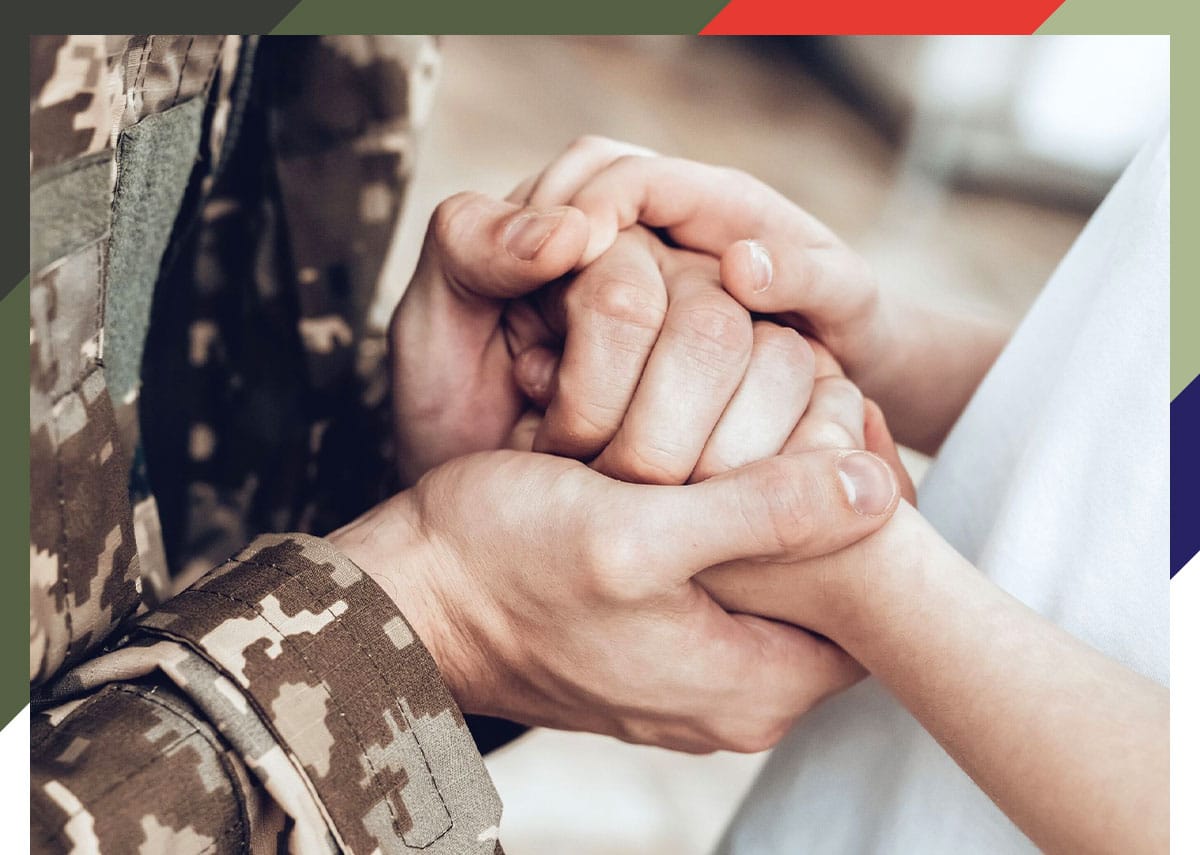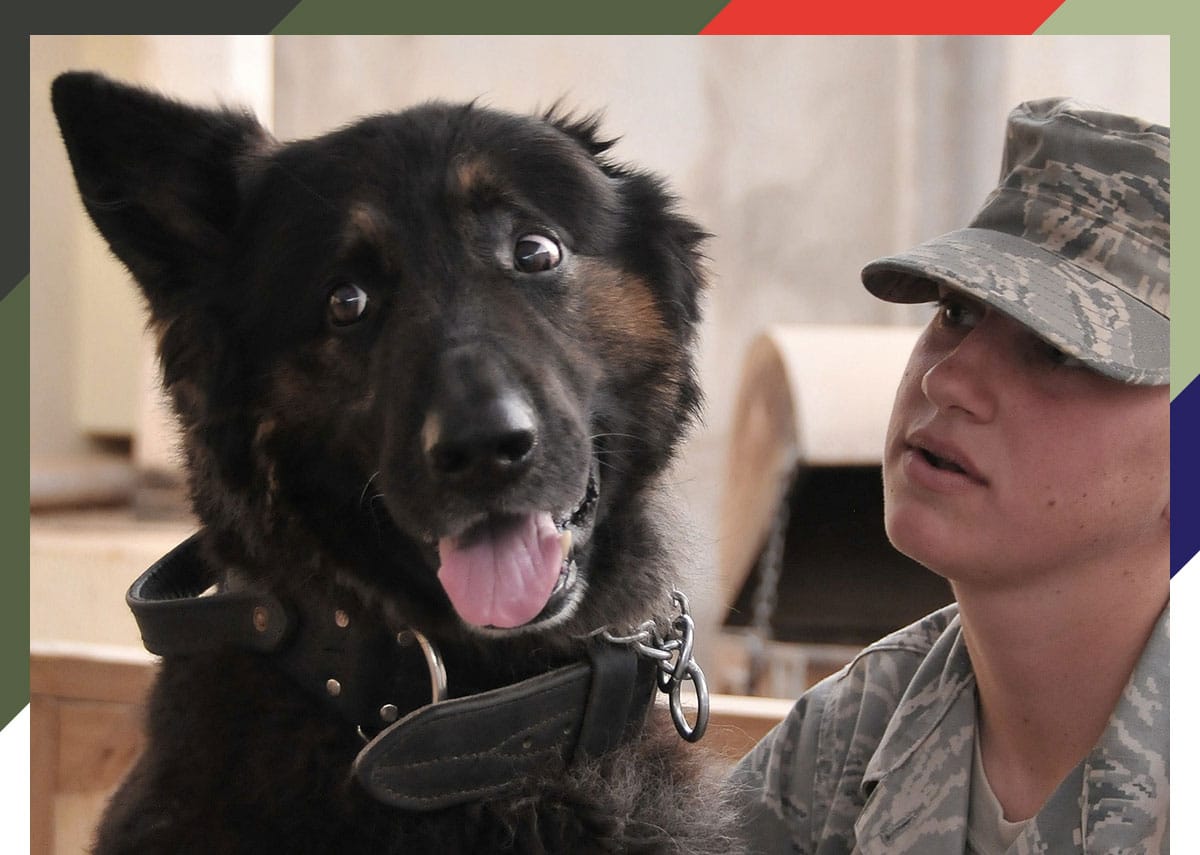Celebrate Accomplishments with a Military Care Package from My Hero Crate
 Louise Valentine has been bucking tradition for years. Before completing her undergraduate degree, she started her own business — the first one. She never stops learning, as evidenced by the alphabet soup behind her name — five major credentials she’s earned over the years to stay at the top of her field. And she’s mastered the art of living without separating work and play.
Louise Valentine has been bucking tradition for years. Before completing her undergraduate degree, she started her own business — the first one. She never stops learning, as evidenced by the alphabet soup behind her name — five major credentials she’s earned over the years to stay at the top of her field. And she’s mastered the art of living without separating work and play.
Oh, she’s also an Army wife, currently stationed in Maryland with her husband and two children, after moving nine times in 11 years, enjoying a full-time career and side gig dedicated to helping people live healthful lives, physically and mentally. The latest way she’s done that is by writing and self-publishing a book on a wildly abbreviated timeline.
You might find yourself feeling exhausted thinking about accomplishing all of that in a single lifetime. But Louise isn’t. She focuses on the driving force behind everything she does, and sticks with it.
“My purpose is to help others find realistic ways to live a vibrant, healthy life,” she explained.
Building a Foundation
 Considered a wellness expert, Louise started her career as a sports and medical massage therapist for the NFL when she lived in Ohio. However, after marrying her combat aviator active duty husband, she moved to New York state to join him at his duty station.
Considered a wellness expert, Louise started her career as a sports and medical massage therapist for the NFL when she lived in Ohio. However, after marrying her combat aviator active duty husband, she moved to New York state to join him at his duty station.
After years of re-engineering her career at each new duty station, Louise was awarded a research fellowship with the Army, where she could utilize her health expertise. During her two-hour daily commute, she planned Team Valentine Project, an online comprehensive health resource, at www.TeamValentineProject.com.
As she drove, she’d dictate notes into her phone and transfer the information to a later blog post. The platform shares tips, tricks, and tools for leading a healthful life, with Louise’s experience as a military spouse sprinkled throughout.
Unbeknownst to Louise, the health tool she created in her spare time would go on to help her land a leadership role at a healthcare technology company, Vheda Health, where she works as the Director of Client Services. It’s a position that allows her to help Medicaid, Medicare, and employer group high-risk populations find ways to navigate chronic disease and improve their overall wellness.
And that’s a task that Louise is no stranger to, herself.
Overcoming Obstacles
In a short span of time, Louise received major medical diagnoses that would change how she approached her work: osteoporosis, and a pre-cancer diagnosis mid-pandemic last summer. And then her dad received his own cancer diagnosis.
Louise had already been writing about how to break down challenges and researching how to do it. But her dad’s health was the motivation she needed to turn her thoughts into a concise book that she wanted published as soon as possible, that her dad could hold in his hands, and see that he had been a success at instilling his values in her.
She also saw an opportunity to help people suffering during the global COVID-19 pandemic. So, she got to work in June. She was finished by October, just as her dad completed his month-long ICU stay because of coronavirus.
“When we’re motivated to help others and see the impact we have on them, it’s powerful and energizes you,” she said.
Her book, now available on Amazon, is called The Art of Breaking Through: Five Simple Steps to Take on Any Challenge & Tackle Self-Doubt. While writing, she channeled how she navigated out of her own dark moments in life to overcome obstacles and come out on the other side better than ever.
“We are all perfectly capable of overcoming obstacles,” Louise said. “The more we recognize that, the more we can do and take on.”
Although the final version of her book is quite short, Louise explained that it was intentional, so that her readers could quickly begin to take charge of their wellbeing rather than devoting too much time to grappling with overly-complicated concepts. Her goal was to empower others to change their lives, and she is confident her short book accomplishes that within its 68 pages.
Tips You Can Follow, Starting Today
Making small changes with great intentions can help you navigate out of a difficult place. Louise says these starting points can help you change the things in your life that aren’t working for you.
-Take a stress inventory. Think about the responsibilities you’re juggling and what you actually need to accomplish in the moment to begin feeling better. Choose what really matters, and start there.
-Recognize that you may need to re-engineer your goals. What you might’ve been able to accomplish under other circumstances could be different because of your current situation.
-Find what works for you by looking to those who are successful as your inspiration. Use their techniques to optimize your time and energy, but don’t restrict yourself to assuming their way is the only way to do things. Ask for help when you need it; find a support system.
-Honor the struggle. Anticipate that obstacles and challenges will appear. When you acknowledge that, you’re less stressed when they arise.
Know that changes take time and won’t happen instantaneously.
“It’s taken me years to get to this place, and it’s a good place to be. That [good place] looks different for everyone,” Louise shared. “Find what works for you, and fill your bucket.”
A Care Package from Home Can Help Motivate Your Hero
 Sometimes motivation comes from things you’d least expect.
Sometimes motivation comes from things you’d least expect.
You would expect your military hero to find motivation from their work, their squadron, and their leadership. But sometimes it’s the smaller things — the things that don’t necessarily affect careers — that are the biggest factors in getting through the day and getting things done. One of those things just might be a deployment care package.
A gift of sweet and savory treats and games or activities to pass the time helps your hero’s mind stay sharp and focused when it’s time to work, because the fun and relaxation our military care packages provide reminds them of everyone who loves them back home.
Send a monthly military care package to your hero today.






